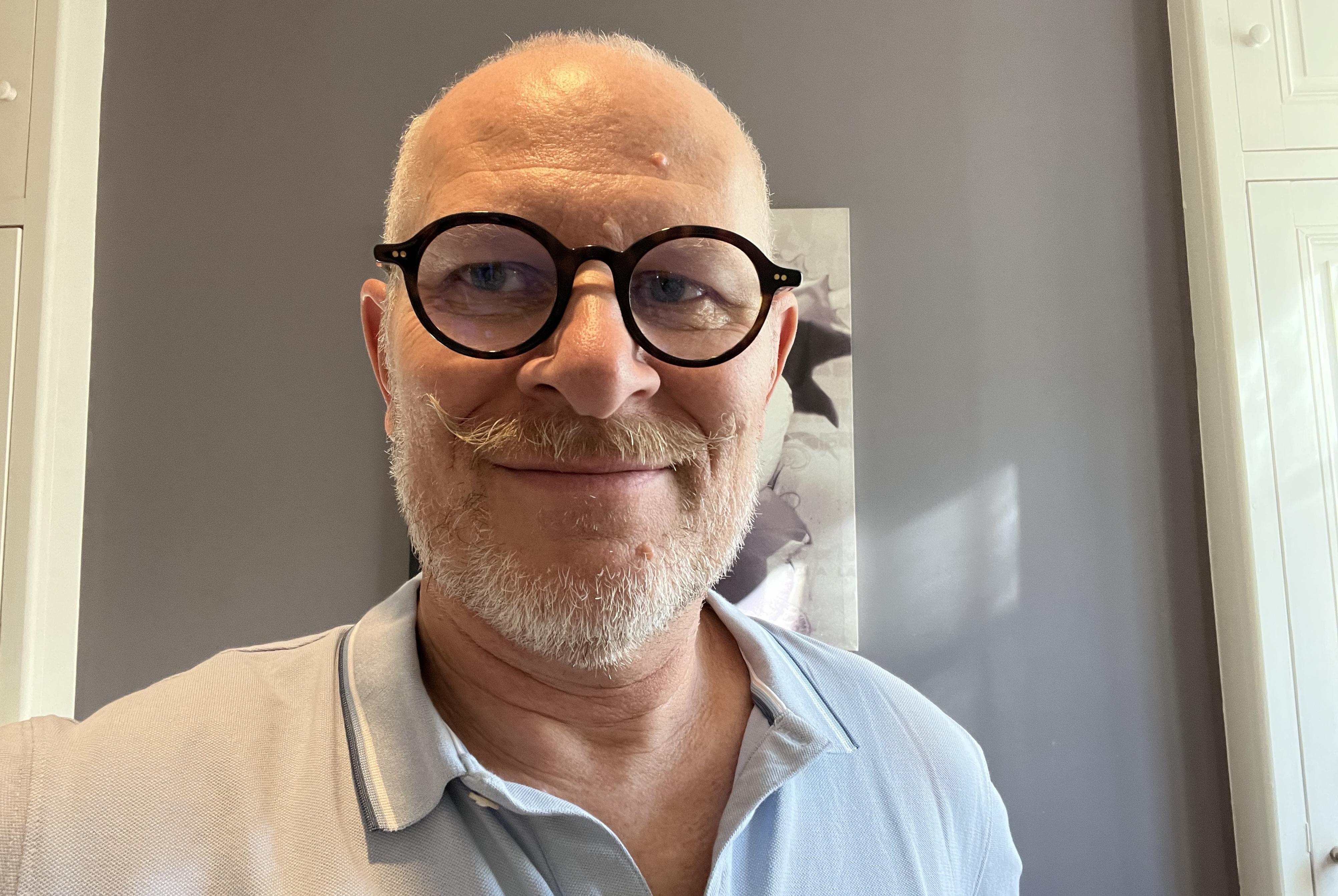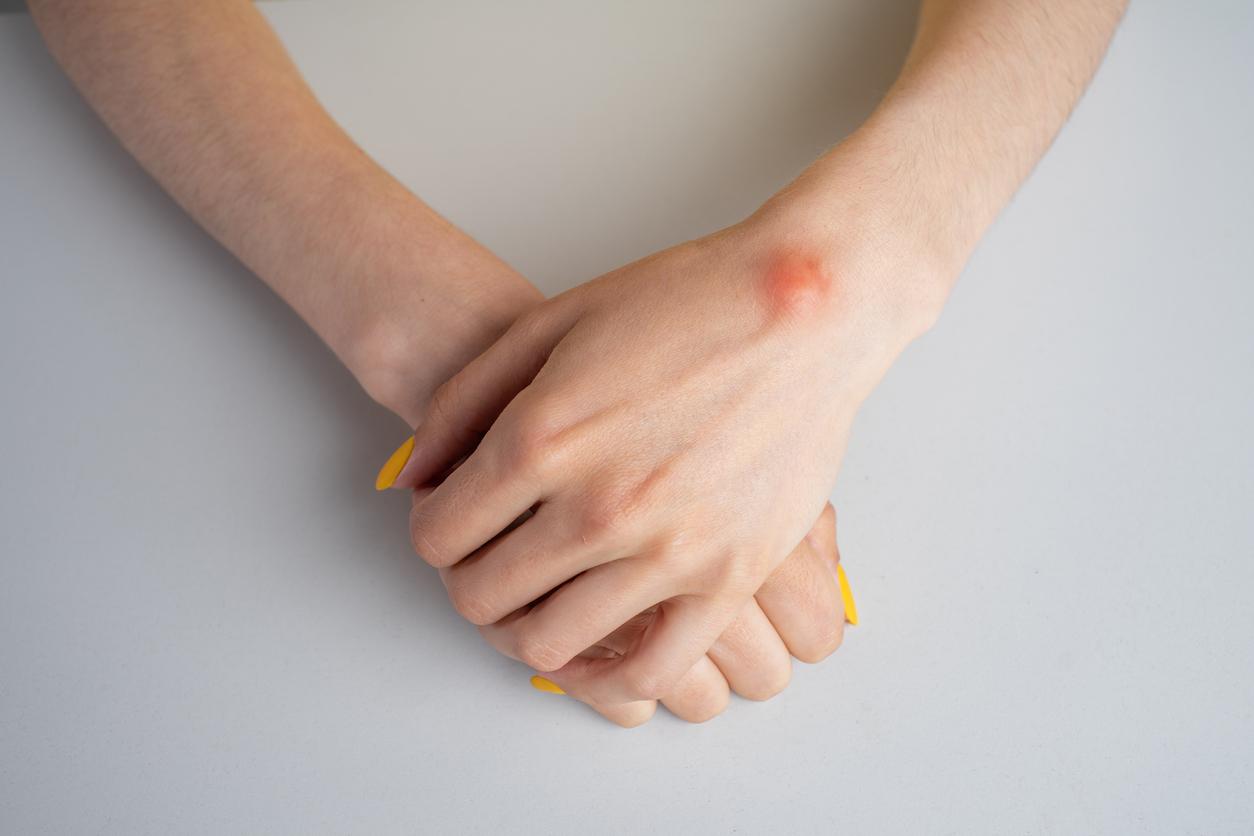Pascale Benaksas discovered her first melanoma at the age of 38 almost by chance, thanks to a screening day. Today, president of the France Asso Cancer et Peau association, she campaigns to make younger generations aware of the importance of sun protection.
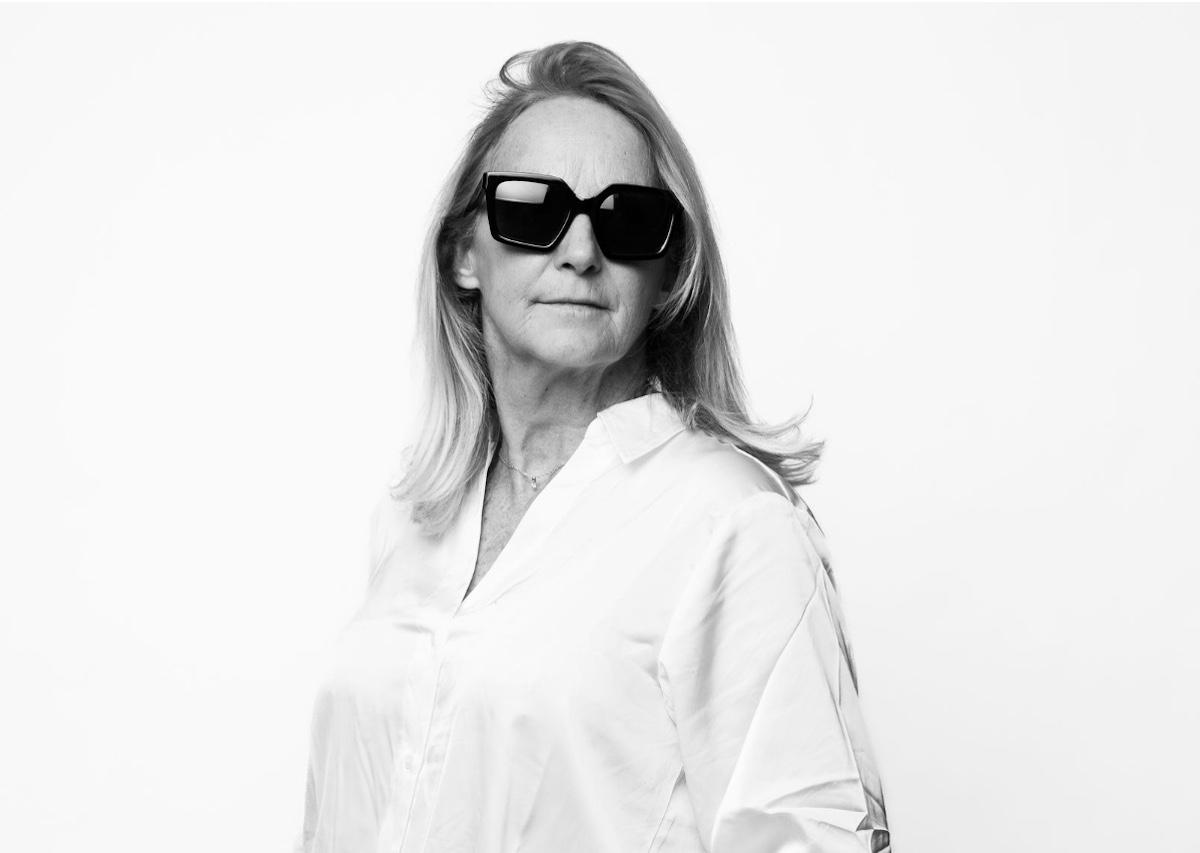
- Pascale Benaksas discovered her first melanoma at the age of 38 during a screening day.
- “It was a tiny 2mm mole on my upper thigh that had turned from light brown to dark brown.”
- Today, president of the France Asso Cancer et Peau association, she campaigns and reminds people: “You must protect yourself from the sun as soon as the UV index is 3, whether there are clouds or not, by using at least SPF50 sunscreen.”
“I discovered my first cancer at 38, an SSM melanoma [à extension superficielle, ndlr]. It was a tiny 2mm mole on my upper thigh that had turned from light brown to dark brown. I wasn’t too worried about it because I didn’t know the risks.“By chance, a skin cancer screening day was organized at the same time in the region where Pascale lives. She went there and met a first dermatologist who alerted her.”He told me he didn’t like the fibrous tissue of the mole and advised me to make an appointment at a dermatologist’s office to have it removed.”
“We felt this stress between patients and doctors because caught late, this cancer is very aggressive.”
The mother then complies without worrying too much. A dermatologist removes this mole and she leaves without thinking about it anymore. At the time, you had to wait two to three weeks to get the results of the biopsy.One evening, the dermatologist called me, a bit devastated, and asked me to come to his office the next day. He explained to me that I had skin cancer and that he had already notified Gustave Roussy for rapid treatment. I was in shock because I didn’t even know that cancer and skin could be associated.”
Pascale then begins regular monitoring at the hospital to monitor for potential recurrences.It was more than twenty years ago and there was no treatment yet. I was lucky because I didn’t have metastases, but for 10 years, I saw many people disappear in this center… We felt this stress between patients and doctors because caught late, this cancer is very aggressive. Survival could be very very short, ranging from a few months to a year.”
“We must remember that it is UV radiation that is dangerous, and this radiation passes through clouds!”
The years go by. Pascale learns to watch for signs on her body and to protect herself from the sun.I lived in Brittany until I was 30 and it is the number one region for skin cancers because we don’t protect ourselves much. The weather is biased, there are often clouds and in this case, we tell ourselves that there is no need for sun protection because the sun is hidden. But we must remember that it is the UV rays that are dangerous, and these rays pass through the clouds!“The current president of the association France Cancer and Skin Association insists on this a lot: “You must protect yourself from the sun as soon as the UV index is 3, whether there are clouds or not, by using at least SPF50 sunscreen.”
Another melanoma struck Pascale about fifteen years later, on her face.I remember it was the middle of summer, during the July 14 bank holiday. I couldn’t find a dermatologist and I had this little spot on my temple that was starting to get bigger, going from flat to a little ball.“Once the doctor was found, the diagnosis was made: it was a nodular melanoma, a form of skin cancer that progresses even faster than classic SSM melanoma.”It was necessary to remove it all the more quickly because its location was close to the brain, so the metastases could quickly migrate towards it.“The operation is also delicate and involves risk.”When I went into the operating room, they explained to me that I would have the equivalent of a 5 cm scar or the size of a CD. I panicked because it could eat part of my eye…“When you wake up, you feel relieved:”I immediately touched my face and felt that my eye was not affected. Later, I had a skin graft that they took from my neck and it worked well.”
“Anything that changes on our skin should alert us, whether it is a mole or a spot.”
These two cancers have greatly changed Pascale’s vision, and she regrets not having paid more attention.For all types of cancer, the announcement is heavy, but for skin cancer it is a shock because we are faced with a heavy diagnosis, with a potentially life-threatening prognosis, and we tell ourselves that all this is “just” because of the sun… and then we realize the stupidity of our actions!“With her association, she is now seeking to change mentalities about the risks of the sun. And this is all the more urgent since the 1990s, the number of skin cancers has more than tripled in France.”I took over the presidency of this association to provide my expertise because personally, I might have been able to avoid these cancers if I had been shaken up at some point in my life. We need to stop the soft-spoken communication where we say ‘put on sunscreen’ but without really showing what we fear behind it.”
“Anything that changes on our skin should alert us, whether it is a mole or a spot. And above all, know that there is an emergency in oncodermatology: the mole that bleeds on its own. This means that there is a lot of damage underneath, so you need to consult very quickly”, concludes Pascale Benaksas.









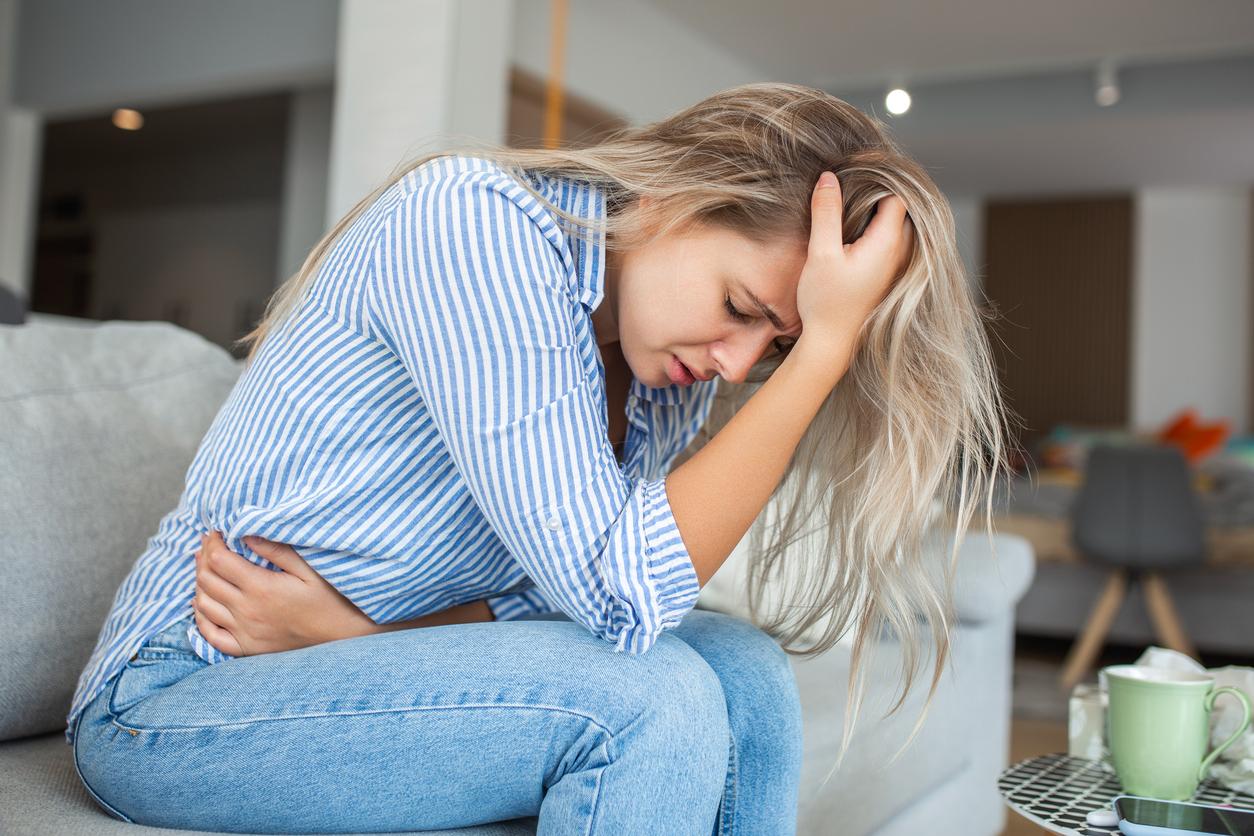
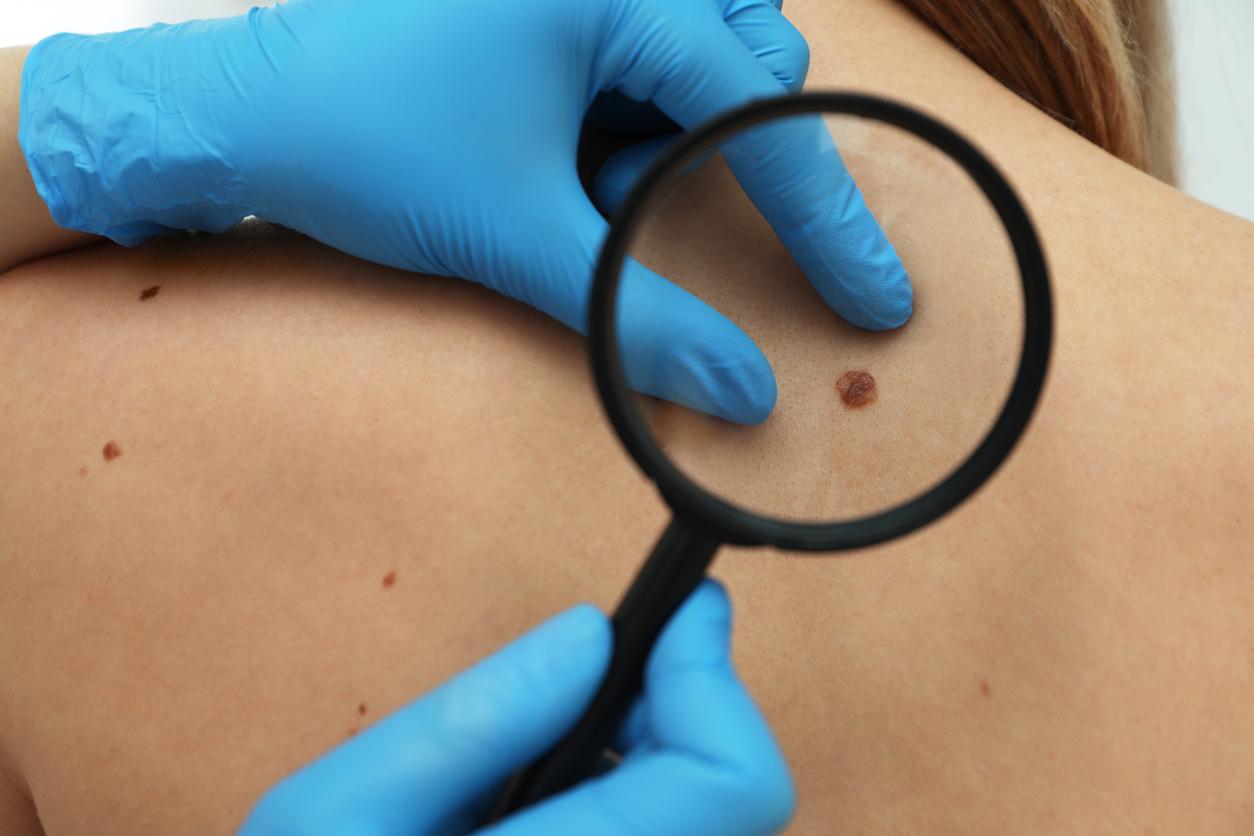
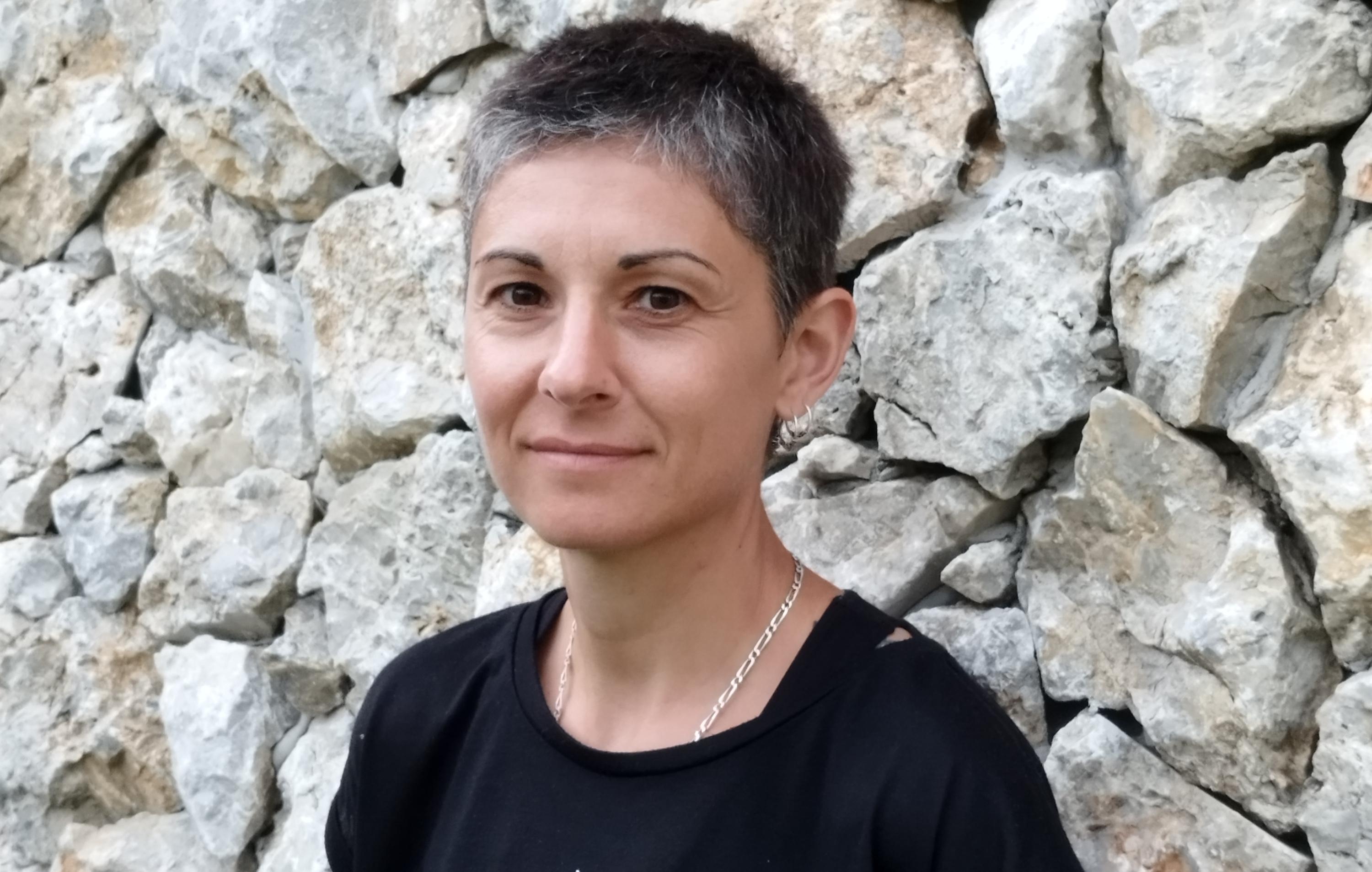

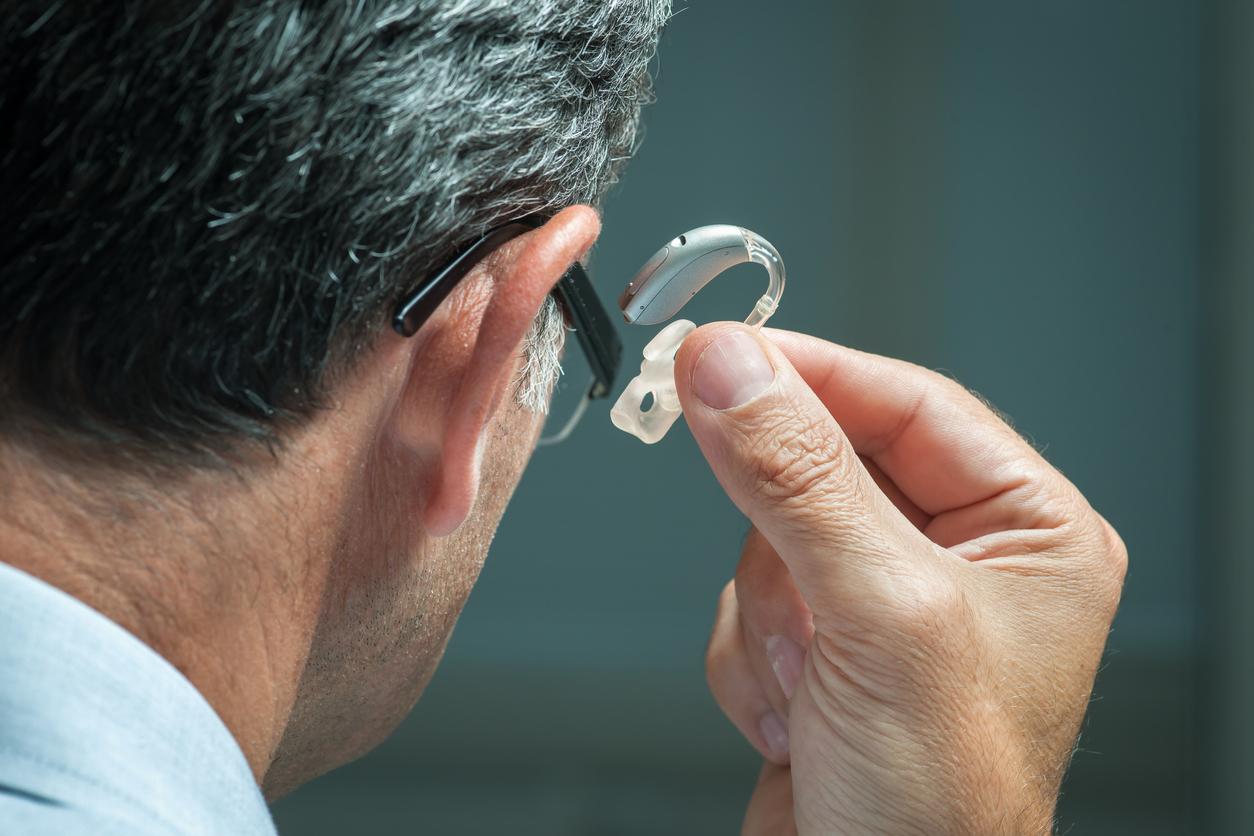
-1730888646.jpg)
